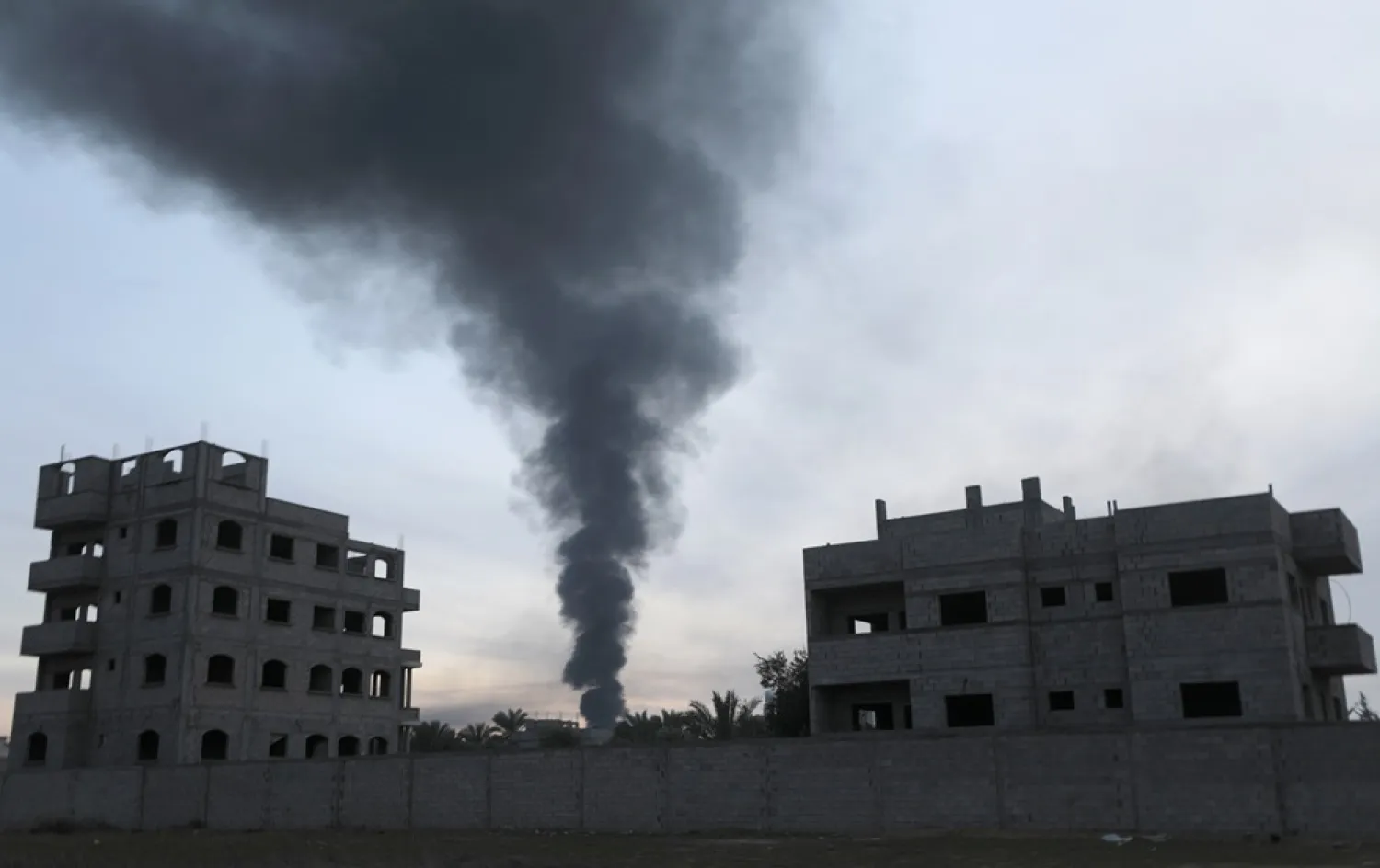Israel battled Hamas militants in the Gaza Strip's biggest cities on Thursday and said it had attacked dozens of targets, leaving 350 Palestinians dead and the rest struggling to survive in rapidly shrinking areas of refuge.
Gazans crammed into Rafah on the southern border with Egypt, heeding Israeli leaflets and messages saying that they would be safe in the city after successive warnings to head south.
But more than 20 people were killed in apartments there late on Wednesday sheltering displaced civilians from the north, said Eyad al-Hobi, a relative of some of those killed.
"All apartments in the building suffered serious damage," he said as people brought out two apparently lifeless children.
Another relative, Bassam al-Hobi, said the building had been hit by three rockets.
"They targeted women and children, as you can see, and the guests who were told the south would be safe," he said, gesturing to bodies wrapped in white cloth, some small, lined up on the ground and surrounded by mourners.
Israel said militants had fired at least one rocket from Rafah and 12 from the desolate area of Al Mawasi on Gaza's southern Mediterranean coast where it has also advised displaced people to gather, leaving the status of the areas unclear.
In southern Gaza's largest city, Khan Younis, Israel said its forces killed a number of gunmen, including two militants who emerged firing from a tunnel. Residents reported several Israeli air strikes and non-stop tank fire in the city's east.
In Washington, a senior State Department official said US Secretary of State Antony Blinken spoke with Israel's strategic affairs minister on Thursday, and told him Israel needs to do more to protect civilians in its offensive in southern Gaza.
New phase
Israeli troops reached the heart of Khan Younis on Wednesday in a new phase of the war, now entering its third month. Health officials said three people were killed there on Thursday.
Ambulances and relatives rushed the wounded into the city's Nasser hospital, but even the floor space inside was full. Two badly wounded children lay on a trolley and a bloodstained young boy lay screaming among the patients on the floor.
"The injuries are very severe," said doctor Mohamed Matar. "The situation is catastrophic in all senses of the word... We can't treat the injured in this state."
Those who escape violence face an increasingly desperate struggle to survive.
Ibrahim Mahram, who fled to Al Mawasi, said five families were sharing a tent in the former Bedouin village, which refugee organizations say lacks shelter, food and other necessities.
"We suffered from the war of cannons and escaped it to arrive at the war of starvation," he told Reuters.
"We divide one tomato between all of us."
The UN Palestinian Refugee Agency (UNRWA) said 1.9 million people - 85 percent of Gaza's population - had been displaced and its shelters were four times over capacity.
UN refugee chief Filippo Grandi said pressure was growing in the south of the enclave near Egypt.
"People are piling up in the little sliver of land between Khan Younis and the Rafah border," he told Reuters.
Egypt said it would not allow Gazans to be pushed across its border. Diaa Rashwan, head of the State Information Service, added that Egypt believed Israel was also trying to force Palestinians in the West Bank towards Jordan.
The Gaza health ministry said 17,177 Palestinians had been killed and 46,000 wounded since Oct 7, when Israel began bombing Gaza in response to an assault by Hamas militants who control the enclave. In the past 24 hours alone, 350 people had been killed, ministry spokesman Ashraf Al-Qidra said.
Israel says it must wipe out Hamas and is doing everything possible to get civilians out of harm's way.
Bombing and gunbattles
Israel said it had raided a Hamas compound in Jabalia, killing several gunmen and found tunnels, a training area and weapons. Israeli television showed scores of men, stripped to their underwear, sitting on a road. Maariv newspaper said they were Hamas fighters captured in Gaza City.
The armed wing of Hamas said fighters had destroyed or damaged 79 army vehicles in Gaza City in the past three days but did not produce evidence.
The surprise Hamas incursion on Oct 7. killed 1,200 people, with 240 people taken hostage, according to Israel's tally.
The Israeli military says 88 soldiers have been killed in ground incursions into Gaza that began on Oct. 20.
The UN has been unable to distribute aid in any part of Gaza except for the area around Rafah for the past four days, it said in its daily humanitarian report on Thursday.
A senior Hamas official told Reuters mediators were still exploring opportunities for a truce and reiterated its demand that Israel cease its attacks.
UN aid chief Martin Griffiths said on Thursday there were promising signs that the Kerem Shalom crossing in Israel could soon be opened to allow more humanitarian aid into Gaza.
A guided-missile attack from Lebanon killed a 60-year-old farmer in northern Israel on Thursday, Israel's public broadcaster Kan said, and Prime Minister Benjamin Netanyahu warned that Beirut would be turned "into Gaza" if Hezbollah, a Hamas ally, started an all-out war.









